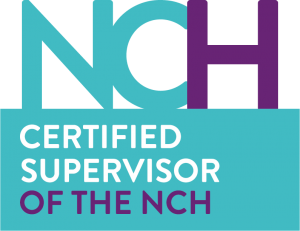Stress at work - do I have to have it?

I had a conversation recently with a close family member who visited Cornwall on holiday. It was a wonderfully warm day, albeit in the height of winter, and it seemed like city living was nothing more than 1,000,000 miles away. A quick round of golf, followed by coffee and then a gentle stroll to the nearest Cornish fishing village for some lunch. It was over lunch that we discussed how busy lives seem to be getting! The number of things that we had to remember on a day-to-day basis just in our personal lives for example, car tax and MOT followed by a major service including replacement of all the brake pads and discs at the front, cancel the parcel delivery, arrange school holidays and deal with the recent complete breakdown of the works laptop following a routine update. Work was busier, the commute into London daily followed by changing projects, prioritised so that closing deadline could be met in a timely fashion with a workload looming that looked like the size of Mount Vesuvius… So what exactly is it about modern living? Now don’t get me wrong I’m a big fan of new technology that makes our lives so much simpler in some ways, but then doesn’t it also create and contribute the stress that we tried to get rid of from our lives? As technology replaces jobs we seem to be living in a climate where individuals have much more responsibility, a far bigger workload, tighter deadlines in a society which no longer has patience, and shrinking budgets to the point where it is almost impossible to get the job done well and meet the quality specification.
It’s only right that we understand the definitions of stress. Psychologists categorise stress into 3 different types:
- Acute stress this is typically caused by the daily demands and pressure of living. It is the most common form of stress and it does bring feelings of excitement. Too much acute stress over a longer term can bring tensions resulting in headaches and other physiological symptoms such as anger, anxiety and even depression. Discuss symptoms can be stomach upset, dizziness, heart palpitations, shortness of breath, hypertension and bowel disorders
- Episodic stress is the term given to acute stress and is experienced frequently. When you are experiencing episodic stress symptoms it is likely that you will trigger depression, anxiety disorders and find yourself ceaselessly worrying.
- Chronic Stress develops due to long-term exposure to stressors such as a traumatic experience, unhappy relationship, family issues, poverty and chronic illness to name a few. Chronic stress is said to “destroy the mind, body and spirit.”
The following figures are taken directly from the HSE website:
- The total number of cases of work-related stress, depression or anxiety in 2013/14 was 487 000 (39%) out of a total of 1 241 000 cases for all work-related illnesses.
- The number of new cases of work-related stress, depression or anxiety in 2013/14 was 244 000.
- The rates of work-related stress, depression or anxiety, for both total and new cases, have remained broadly flat for more than a decade.
- The total number of working days lost due to stress, depression or anxiety was 11.3 million in 2013/14, an average of 23 days per case of stress, depression or anxiety
- The industries that reported the highest rates of total cases of work-related stress, depression or anxiety (three-year average) were human health and social work, education and public administration and defence.
- The occupations that reported the highest rates of total cases of work-related stress, depression or anxiety (three-year average) were health professionals (in particular nurses), teaching and educational professionals, and health and social care associate professionals (in particular welfare and housing associate professionals).
Discovering that 39% of all work-related illnesses were due to stress and that 244,000 new cases of work-related stress were diagnosed last year I decided to see what the NHS reported about stress. They say that “anxiety, stress and depression are behind one in 5 visits to a GP” caused by work pressure, lack of support from managers and work-related violence and bullying.
So who is responsible for noticing stress? It is my opinion that we are all responsible for spotting stress. As a leader and manager I was always aware of the pressure that my staff were under and of course ensuring that I was noticing my manager and my peers. If you think that a colleague is suffering from stress, have the courage to ask them, maybe not outright, but in a way which will get an honest, straightforward response. Some of the warning signs are heavy smoking and drinking more than normal, anger and irritation – sounds familiar?
Does it have to be this way at work?
Good stress management is an important part of today’s workplace practice by managers. The following are ways in which individuals can manage their stress:
- Be active
- Take control
- Connect with people
- Have some ‘me time’
- Challenge yourself
- Avoid unhealthy habits
- Help other people
- Work smarter, not harder
- Be positive
- Accept the things you can't change
As an expert in clinical hypnotherapy and coaching I work with people all the time on the above points and yet, wouldn’t it be fantastic if companies could move away from the traditional do nothing or internal coaching models to employ consultants who could not only come into the company and coach freely but also counsel and work with individuals in solution based hypnotherapy. I’ve attended numerous HR networking events and heard from companies who pay for their employees to attend counselling and therapy yet apart from internal coaches I have not known companies to employ internal hypnotherapists as yet? I may be wrong, however, the way I see it, life isn’t going to change and stress at work is only going to become more prevalent!!
Is there anything that I can do NOW to ease stress? Yes, meditation.
This article wasn’t meant to be wholly a rant about stress at work! It is about meditation… Certainly in the last 5 years the term mindfulness has become really prevalent. Mindfulness meditation is a simple practice which can help break the cycle of anxiety and stress. You could choose to join a mindfulness group or a meditation class. However you choose to meditate you will find a technique that is right for you.
I’ve enjoyed meditating for a number of years now and I have found that I really do enjoy guided, over self-meditation, this is a service that I also offer clients by the way. The best time for me to meditate is between waking up and choosing to get on with the day; a friend of mine wakes up at 5.30 in the morning in order to meditate for an hour before the daily routine commences. Sessions can last from 20 minutes to an hour and to get the best effect and listen to a track from ‘Youtube’ via earphones. I personally do not choose what I want to get from meditation I let my subconscious decide for me but I do know that some people would choose to concentrate on lowering blood pressure, depression, anxiety to maybe become less angry, concentrate on a specific aspect of life that is bothering them at the present. During meditation you can expect a metaphoric story to be played out in your mind, to see different colours, to hear different things; everyone’s meditative state is different but it is a fantastic journey.
Famous Endorsements - The Metro recently reported that “…things have never looked so good for Jennifer Aniston…” she looks stunning and much younger than her real age. So how does she stay healthy and fit?
“I used to be very strict and not eat carbs after 5 PM. Carbs are my weak spot. I am not a sweet girl. But every 2 weeks or so, I will have a big bowl of pasta. 4 to 5 days a week I will do a run, mixed in with strength training or yoga. The yoga’s mishmash but it’s like cardio or power yoga. Sometimes I will do a 30 minute spin class. I tried to keep it interesting.”
“I do transcendental meditation. Growing up in California, there was always some sort spirituality, and I always try to do my version of meditating, and whatever that was, or just being quiet. But in 2009 I got hooked on TM. I can’t really put my finger on what’s changing, but something is tangible. I try to do it twice a day.”
As reported in The Metro, Wednesday, February 11, 2015
Transcendental meditation is a form of mantra meditation that is meditation by facilitated by the means of sound, a syllable, a word or a group of words believed to have psychological and spiritual power. For example the OM mantra is a very powerful tone and vibration which is sacred in a number of religions.
I would really advocate the use of a number of differing meditative techniques until you find one which you can relate to, enjoy and one which you feel drawn to - I challenge you to practice meditation daily for between 4 to 8 weeks before deciding it’s not for you.
Guided Meditation for relaxation and stress.
If you’d like to talk to me about guided individual or group meditations, relaxation and removal of stress and anxiety from your life (or company) then I’d be delighted to meet for coffee or chat on the phone. Contact me to make that free no obligation meeting request.





